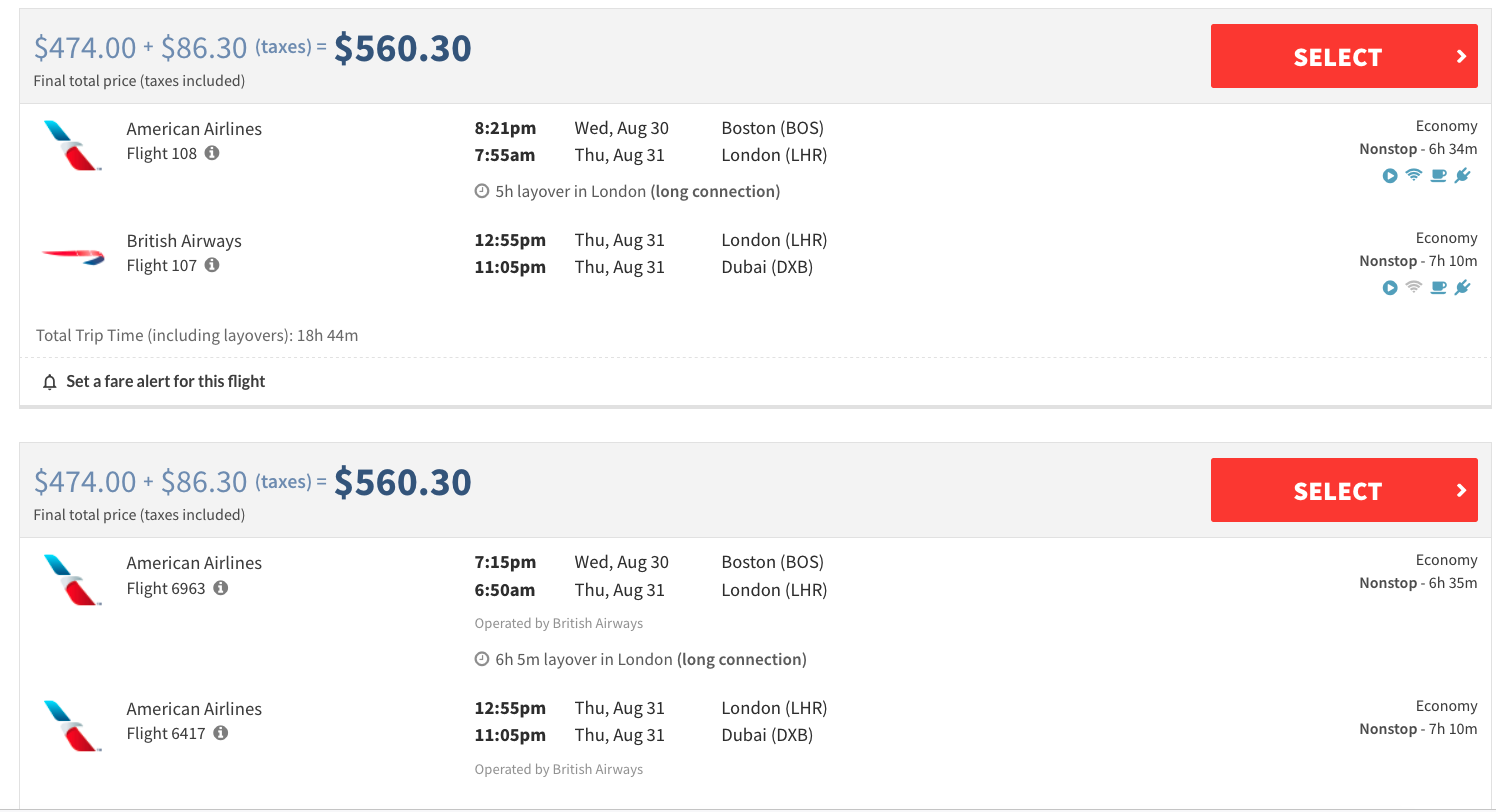As already explained in another answer, this is a common practice (both the strange pricing and the strategies to get around it). I am familiar with this inside the US, and I find it interesting to see it internationally. Which raises a few issues that don't apply for domestic travel:
There are some situations where you may be able to transit through an airport but not enter the country. Alternatively, it is possible that you might have permission for the middle location but not for the final destination. In this example, there may be some people who are allowed to travel Dubai and transit through UK but not be allowed to enter UK to stay there for any significant period of time. The airline would be responsible to make sure you have the right paperwork to enter Dubai (to the best of their knowledge) but not to enter the UK. Which means that if you then had a problem entering UK, the airline would not be responsible, and by the time you find out, it is likely that the flight to Dubai will have already left. And then you could end up in quite a bit of trouble, including having to pay top dollar for an immediate flight back to the US.
On the flip side, if you have permission to enter the UK but do not have permission to enter Dubai then the airline will (correctly) not allow you on the flight in the first place. So you'd better have everything lined up perfectly or you will have problems.
This can be due to your showing up at the airport too late, flight cancelled due to weather or equipment problems or an overbooked flight and you are the lucky one to be kicked off. The problem is that the airline is only responsible to get you to Dubai, and might find another flight for you that is either non-stop (normally a good thing!) or stops/transfers in a different country. Either way, you end up somewhere other than where you want to be. This could happen with a domestic flight too, but the difference between London and Dubai is a lot more than between Denver and Los Angeles, etc.
Many countries, depending on status (citizenship, reason for travel, visa status, etc.) may require you to show proof of where you will be staying (name/location of friends/relatives or hotel reservations) and/or proof of a return flight (or a flight to some other country). That could get rather tricky in this case if both the UAE (to show the airline that you are OK based on the itinerary) and the UK (to actually enter the UK) have such requirements.
- Can You Get Off the Plane?
I know in domestic flights (US, many years ago), if you were on a flight with a stop but you were going to the next stop on the same plane, they would often not let you get off the plane, because they wanted to minimize people moving around in order to have a faster turnaround. That is probably less likely to be an issue here, as an international flight like this might even be two different airlines (one of them a code-share), and even if one airline more likely to have stops in between. In a case where there is a 6 hour gap between flights then even if the second leg is on the same plane, nobody is going to want to stay on the plane that long and the airline will likely need to (or should do) a full cleaning in between. But I am sure there are some exceptions, and in those exceptions you may cause quite a stir if you insist on getting off the plane at a location that is not the location on your ticket.


